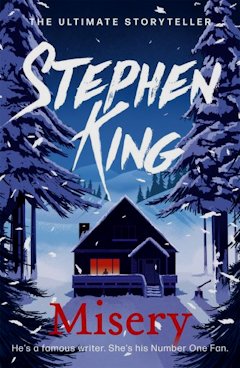There was no other motor traffic. An old man grumbling grudges to himself passed on a bicycle. A little boy with a stick appeared, searching for magic or mischief. Either would do; neither would surprise him. The day was quiet, endless, and Caitrin knew she was too late; the lorry had probably gone. A robin dropped to the ground at her feet and jabbed at something in the grass. She watched it pursuing an invisible prey and looked up to see the doctor returning to his car—just as the lorry passed between them.
The number plate was different, and signs on the door and along the side read MACDUGALD & SONS, FISHMONGERS. But it was the same lorry. It was past her before she could react.
She leaped to her feet as the lorry disappeared and caught a movement to her right. The doctor was opening his car door. She reached him just as he closed it and rapped on the window. He wound it down.
“This sounds so lunatic, I know,” she blurted out. “But would you follow that lorry?”
“Yes!” The doctor’s eyes widened with glee. He jammed the car into gear, floored the accelerator, and screeched away—leaving Caitrin standing on the pavement. Open-mouthed, she watched him leave.
Fifty yards away, the doctor braked hard, reversed to her, and said, “Got a wee bit ahead of myself there. For this to work properly, I suppose you should come along too?”
“That would be very nice,” Caitrin said, ran around to the passenger’s side, and was hardly in her seat before the doctor took off again.
“Those dirty, yellow-bellied rats,” the doctor said from the corner of his mouth in a passable James Cagney impersonation.
“What?”
“You a shamus?”
“What, again?”
“A copper.”
“I am.”
The doctor turned his lapel. “Show us ya buzzer, then.”
“Buzzer?”
“Cop badge, for undercover detective work. George Raft.”
Caitrin rubbed her eyes. “Forgive me, I thought I was in the Scottish Highlands.”
“You are,” he replied, and went back to being Scottish again. “Sorry, I’m a huge gangster film fan. Go to the pictures in Glasgow as often as I can. Doctor Munro Finlay at your service.”
“Caitrin Colline, and you might want to slow down, or they’ll be following us.”
“Right, right,” Finlay said and eased off the accelerator. “OK, sister. Give with the lowdown. Why are we chasing them dirty bums?”
“They stole some . . . family heirlooms.”
“They gonna be throwing lead at us?” Finlay/Cagney said.
Lead—bullets—guns. “Yeah, they got roscoes,” she said in her best moll accent, to Finlay’s wide-eyed delight.
“I’ve got a twelve-gauge in the back.”
Caitrin glanced into the back seat, which was filled with horse blankets, Wellington boots, waders, and strange medical instruments. “What kind of doctor are you?”
“A vet. Large animals, small animals, everything except penguins and porpoises. Even them, I suppose, should the need arise. Are you carrying a gat?”
“No, and we’re not getting that close. There will be no shooting.”
That disappointed Finlay. “So why are we following them?”
“To see where they’re going.”
“And then what? You’ll bring in more cops to help the local constabulary, actually constable? There’s only one, that’s Wully, and he’s not exactly fleet of mind or foot.”
“I tried to call London, but the line was dead.”
“That’ll probably be Archie MacPherson’s doing. He’s a farmer up in Drumgan convinced the telephone wires make his sheep go bald. So he cuts down the telephone lines and steals the copper wire to make bracelets for his arthritis. It will be repaired by tomorrow, perhaps.”
“Maybe someone should shoot Archie,” Caitrin said and pulled out her Scotland book. “Where are they going?”
“Only one place. The road leads straight to Fort William. Oh, oh.”
She looked up to see what had alarmed Finlay. A hundred yards ahead of them, the lorry was parked in the center of the road.
“What do I do? I can’t turn around, and they’re blocking the road,” Finlay said.
Caitrin slipped over the seat, curled up in the footwell, and pulled the horse blankets over her. “Drive down slowly, and see if you can inch past them. And please, no gangster stuff.”
Finlay drove forward as a man came from the front of the lorry and waved him to stop. He wound down his window and called out, “Good afternoon to you. Are you having a spot of bother with your lorry?”
“No, just making sure we don’t. Would you mind turning off your engine?”
As the engine died, Caitrin recognized Captain Murray’s voice and unsheathed her sgian dubh. A knife would be no match for armed men, but the battle was never over until one side surrendered. And she was not about to do that.





















